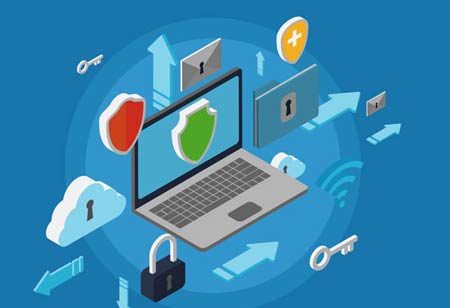THANK YOU FOR SUBSCRIBING
Key Tips to Avoid Cyber Scams
Professional organizations read their messages thoroughly before sending them. Phishing cybercriminals often do not. If you receive a message from a supposedly trustworthy source that contains typos, bad grammar, or incorrect punctuation, it i

By
Apac CIOOutlook | Thursday, April 01, 2021
Stay ahead of the industry with exclusive feature stories on the top companies, expert insights and the latest news delivered straight to your inbox. Subscribe today.
Professional organizations read their messages thoroughly before sending them. Phishing cybercriminals often do not. If you receive a message from a supposedly trustworthy source that contains typos, bad grammar, or incorrect punctuation, it is most likely a scam.
Fremont, CA: There is no "one-size-fits-all" solution for defending yourself and your company from cyber scams. When companies and individuals continue to introduce new devices and technologies, they expose themselves to further cyber-attacks. To effectively protect the valuable information that motivates cybercriminals, we must first understand the various types of scams that threaten us.
Phishing Scams
Phishing attacks are all too prevalent in both corporate and personal networks. They occur when a criminal sends a contact posing as someone else in order to extract or access passwords, personal data, or financial details about the targeted individual or confidential information relevant to the organization for which the target works. Furthermore, 59 percent of all active ransomware infections are spread via phishing scams. Here are a few things to keep in mind to help you identify these malicious scams:
Cross Check Contact Names: Use caution if you receive emails from an unknown source that require you to perform an action, such as providing personal information or signing into a website. Most, if not all, businesses would never ask for your details via email or text. When anyone does this, it should be taken as a red flag that they are not who they claim to be. Check for contradictions in their email address or phone number with the individual or organization they claim to be affiliated with.
Misspellings and Poor Grammar: Professional organizations read their messages thoroughly before sending them. Phishing cybercriminals often do not. If you receive a message from a supposedly trustworthy source that contains typos, bad grammar, or incorrect punctuation, it is most likely a scam.
Recognize Aggressive Behavior: If a message's subject matter and vocabulary are too violent, it is most likely a scam. Have you ever got an email in your SPAM folder that said something like, "Urgent! Your account has been overdrawn for X days. "Please contact us IMMEDIATELY"? The goal here is to make you feel uneasy, panic, and take the action that the scammers want you to take. Instead, before making any immediate decisions, consult with the group they claim to represent.
See Also :- Top CyberSecurity Companies





